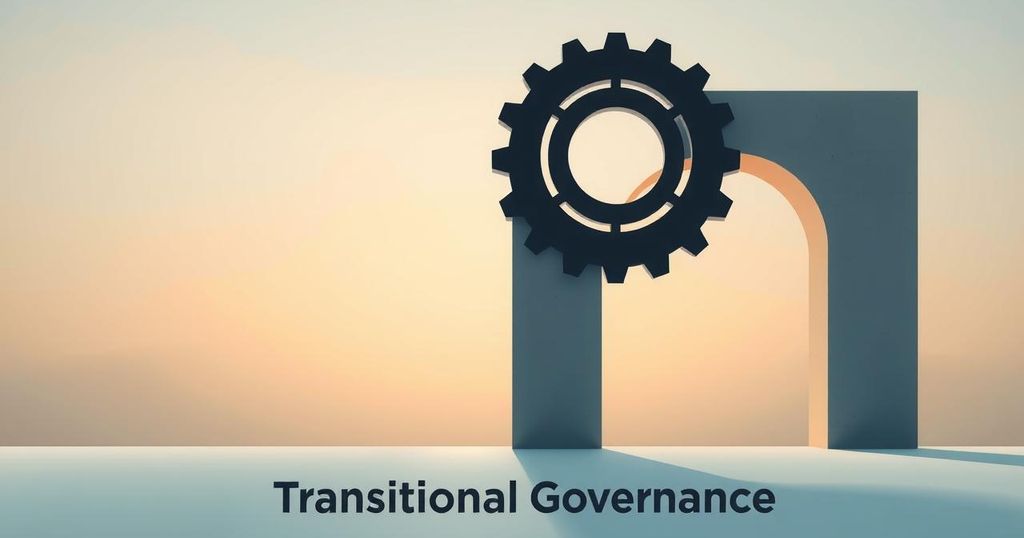Ahmed al-Sharaa has been appointed as Syria’s transitional president following the overthrow of Bashar al-Assad. He will form an interim legislative council and dissolve all rebel factions. The Syrian government is seeking reparations from Russia to address past grievances. The situation reflects ongoing efforts to rebuild and stabilize the nation post-civil war.
Ahmed al-Sharaa has been appointed as Syria’s transitional president, according to state media, following the recent successful rebel offensive that resulted in the overthrow of Bashar al-Assad. The announcement of his presidency comes as Abdul Ghani, a rebel military commander, declared the cancellation of Syria’s 2012 constitution alongside the dissolution of the prior governance structure, including the parliament, army, and security agencies.
In his new capacity, President Sharaa is tasked with establishing an interim legislative council to govern until a new constitution is finalized. He specified that all rebel factions that opposed Assad during the lengthy civil conflict would be disbanded and integrated into state institutions. This decision was communicated at a meeting in Damascus attended by various military factions allied with Sharaa’s Islamist group, Hayat Tahrir al-Sham (HTS).
HTS, previously affiliated with al-Qaeda and still recognized as a terrorist organization by major international entities, had been the dominant force in northwestern Syria’s last rebel stronghold. The conflict, ignited by Assad’s violent response to a peaceful pro-democracy uprising in 2011, has endured for thirteen years, claiming over half a million lives and displacing twelve million people.
After the entry of rebel forces into Damascus on December 8, resulting in a rapid military success, Assad resigned and fled to Russia. The interim administration, led by former rebel official Mohammed al-Bashir, is presently governing until March. The Syrian government has since urged Russia to rectify historical grievances by offering war reparations during the first visit of a senior Kremlin delegation under the new circumstances.
Following discussions between Sharaa and Russian Deputy Foreign Minister Mikhail Bogdanov, they underscored the importance of rebuilding trust through compensation, reconstruction, and recovery measures. The Russian delegation reaffirmed its commitment to Syria’s sovereignty and offered assistance in the nation’s post-war recovery. Notably, Russian military assaults on rebel positions since their intervention in 2015 have resulted in extensive casualties among civilians and combatants alike.
Recent developments indicate a gradual withdrawal of Russian forces from their installations in Syria, specifically at Hmeimim airbase and Tartous naval base. Satellite imagery has shown Russian warships docked, suggesting preparations for evacuation while Russia aims to retain these strategically important sites. Kremlin spokesperson Dmitry Peskov acknowledged the significance of maintaining continuous dialogue with Syria following the Russian delegation’s visit.
In a recent interview, President Sharaa expressed the importance of sustaining the strategic alliance with Russia, emphasizing their deep-rooted interests. He noted, “All of Syria’s arms are of Russian origin, and many power plants are managed by Russian experts.” As tensions and uncertainties continue, the path to stability in Syria remains cautiously navigated.
The appointment of Ahmed al-Sharaa as Syria’s transitional president represents a significant shift in the nation’s governance after the fall of Bashar al-Assad. With the dissolution of the former parliamentary structure and the commitment to form a new legislative council, significant efforts are underway to reestablish order and governance. Russia’s ongoing engagement also plays a critical role in Syria’s recovery and strategic interests as the nation navigates its post-war future.
Original Source: www.bbc.com




